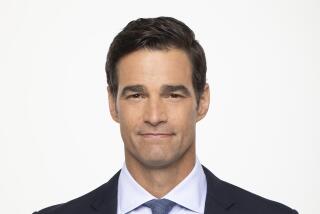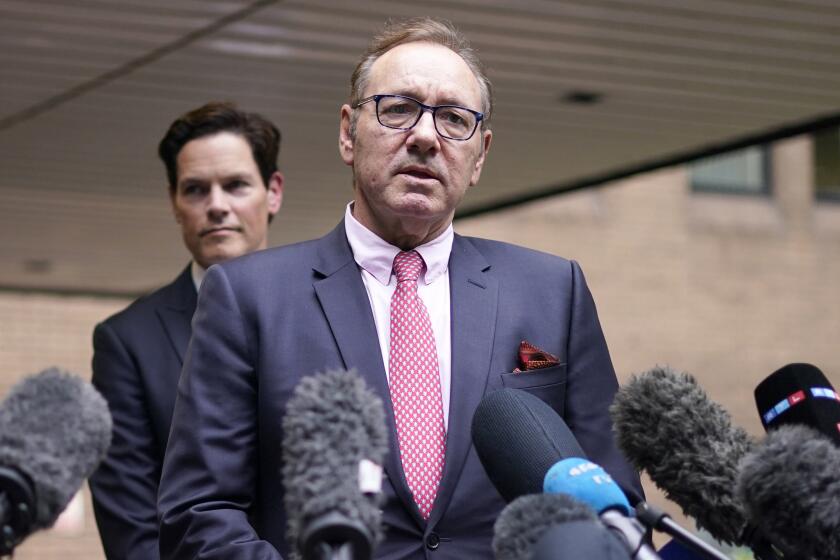Profanity Rules Bother News Shows
Unless the Federal Communications Commission makes some exceptions in its crackdown on foul language, live news coverage may be an endangered species, CBS-affiliated TV stations claim.
The stations have told the FCC that the agency’s “zero tolerance” policy for on-air obscenities holds live news broadcasts to an impossible standard, considering the unpredictable nature of political demonstrations, sports events and other breaking local news stories.
“We’d like the commission to evaluate whether there’s a difference in scripted entertainment programming in which it’s possible to know what is about to happen versus coverage of, let’s say, fires in Southern California,” Bob Lee, chairman of the CBS Television Network Affiliates Assn., said Wednesday. “Do you want to shoot the messenger when news media might be there as observers and participants in the story?”
The CBS affiliates said in their filing with the FCC on Tuesday that if Congress passed a law to revoke the licenses of repeat offenders of indecency rules, as some lawmakers have proposed, stations might be unwilling to take the risk of airing any live news between 6 a.m. and 10 p.m., when the FCC says children are likely to be watching.
“You just couldn’t take the chance of something popping up in the background unanticipated,” Lee said.
On Monday, a CBS affiliate in Phoenix curtailed its live coverage of a memorial service for ex-football star Pat Tillman because of some mourners’ language. Steve Hammel, vice president and general manager of KPHO-TV, said he and the news director decided to end the coverage after two relatives and a coach used what he described as obscenities.
Hammel said the decision had nothing to do with the possibility of an FCC fine.
Since 1991, when the FCC ruled that National Public Radio’s broadcast of a John Gotti interview that included multiple obscenities didn’t violate indecency rules, broadcasters had assumed that foul language in a newscast was protected.
But in March, the FCC ruled that rock star Bono’s use of a sexual expletive during the 2003 Golden Globe Awards was “indecent and profane.” Even “isolated and fleeting” occurrences of a word could subject a station to significant fines or put its license in jeopardy, the agency said.
The CBS affiliates lodged their concerns with the FCC in support of a petition asking the agency to reconsider the Bono decision. The petition was filed by Viacom Inc. -- which owns CBS -- and several other entities, including the ACLU.
The FCC also heard from public television stations, which said they had begun “self-censorship.” The Assn. of Public Television Stations and other groups representing 357 noncommercial television stations said they had spent “inordinate amounts of time scouring news, documentary and dramatic programming for words and visual elements that might be found to be ‘indecent’ ... and words that might be found to be ‘profane.’ ”
The public TV stations said they had to review programs that in the past aired without complaint, such as an “Antiques Roadshow” episode that included a 50-year-old lithograph depicting a nude celebrity. In addition, some language was deleted from “Prime Suspect,” a crime drama that aired on “Masterpiece Theatre,” they said.
Though many stations have adopted time delays to avoid sanctions for live coverage of some events, that solution would create a hardship for local news broadcasts, Lee said. In any case, delays aren’t foolproof, he said. “There is another inevitability that somebody sitting on the button ready to press the blooper switch will miss something.”
More to Read
The biggest entertainment stories
Get our big stories about Hollywood, film, television, music, arts, culture and more right in your inbox as soon as they publish.
You may occasionally receive promotional content from the Los Angeles Times.






